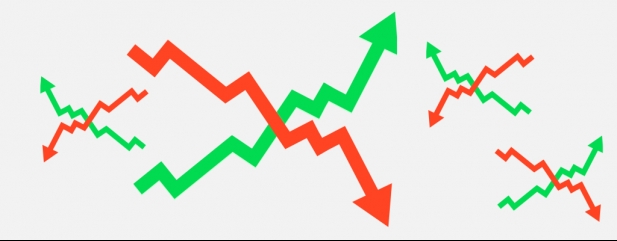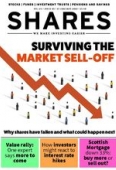Archived article
Please note that tax, investment, pension and ISA rules can change and the information and any views contained in this article may now be inaccurate.
The shares that could go up as the market falls

It’s been a miserable start to the year for a lot of investors, leading many people to ask if we’re seeing more than a simple pullback from last year’s successful run for stocks and shares.
The key headwinds to markets have been clear for months, namely higher rates, an impending reduction in central bank stimulus, and rising inflation, yet investors only now seem to worry.
January has seen a clear shift in market preferences. Highly rated growth stocks have become less desirable and cheaper ‘value’ stocks such as banking, energy and tobacco are in fashion.
Value has prospered as an investment style a few times in recent years, but each rally hasn’t lasted that long. However, Ian Lance, fund manager from value-themed Temple Bar Investment Trust (TMPL), points out that historically there have been plenty of value rallies which have held in place for some time, such as 1973 to 1978, 1980 to 1988, 1990 to 1995, and 2000 to 2007.
On average these value rallies lasted about five years, says Lance, and the average return across each period was approximately 200% versus 70% for the market.
The valuation gap between growth and value stocks is wider today than at the start of those value rallies, which is why Lance believes the current value rally has legs.
It may feel as if everything is falling in value as portfolios take a bruising and many popular stocks like Amazon and Tesla experience approximately 20% share price declines in a matter of weeks. However, investors must not assume that everything loses when the market falls.
As of 24 January, 84 stocks in the FTSE 350 index of UK-listed companies were trading at a higher share price than at the start of the month. More than a third (38 stocks) of the FTSE 100 were up year to date.
In 2000 at the bursting of the dotcom bubble, the US Nasdaq index fell by 75% in the subsequent two years but shares in banks and utilities went up a lot. British American Tobacco (BATS) even went from £3 to £55 over the next 17 years.
Lance suggests energy, banking and miners could be the best places to put your money to play the current value rally. In essence, this means buying shares in a few sectors which have been ignored by a lot of investors in recent years, such as oil which has been shunned on environmental grounds and banking because low interest rates made it difficult for lenders to grow earnings.
But are these stocks ones you want to own forever? Probably not. The best long-term returns have been made from quality companies held for a long time. Therefore it is worth treating value stocks as a short-term opportunity while at the same time keeping an eye out for high quality growth stocks which have been heavily sold down as this could be your chance to pick up some good names at more favourable valuations.
A word of warning: if Russia initiates a full-scale war with Ukraine then stock markets could easily take an even bigger tumble than we’ve seen in recent weeks, so make sure you understand all the risks before you invest given the current cocktail of market headwinds.
Important information:
These articles are provided by Shares magazine which is published by AJ Bell Media, a part of AJ Bell. Shares is not written by AJ Bell.
Shares is provided for your general information and use and is not a personal recommendation to invest. It is not intended to be relied upon by you in making or not making any investment decisions. The investments referred to in these articles will not be suitable for all investors. If in doubt please seek appropriate independent financial advice.
Investors acting on the information in these articles do so at their own risk and AJ Bell Media and its staff do not accept liability for losses suffered by investors as a result of their investment decisions.

 magazine
magazine








